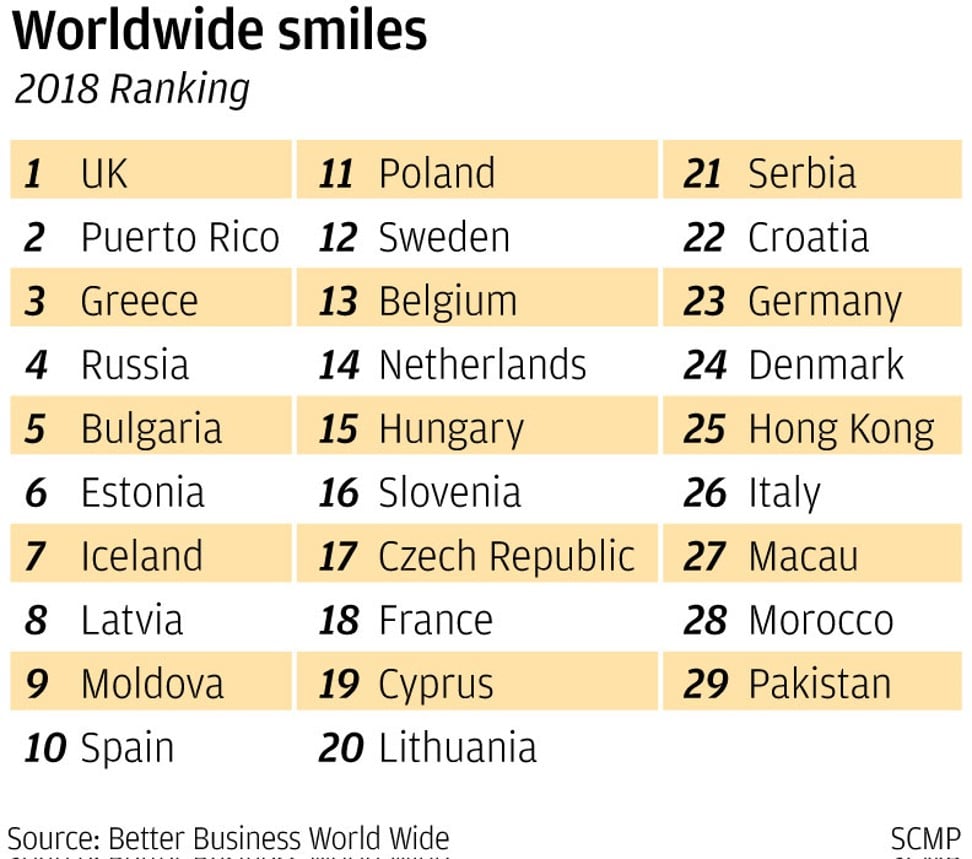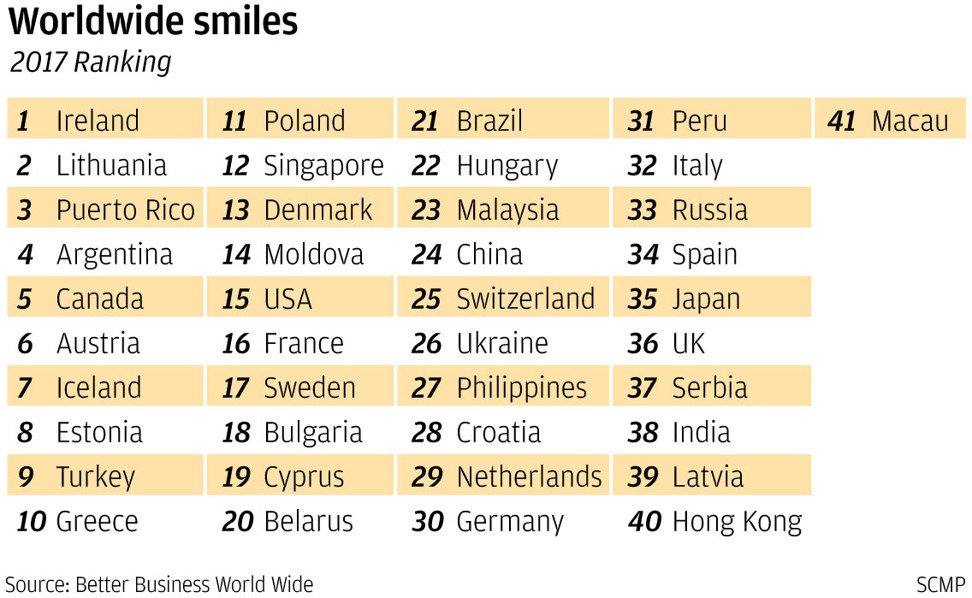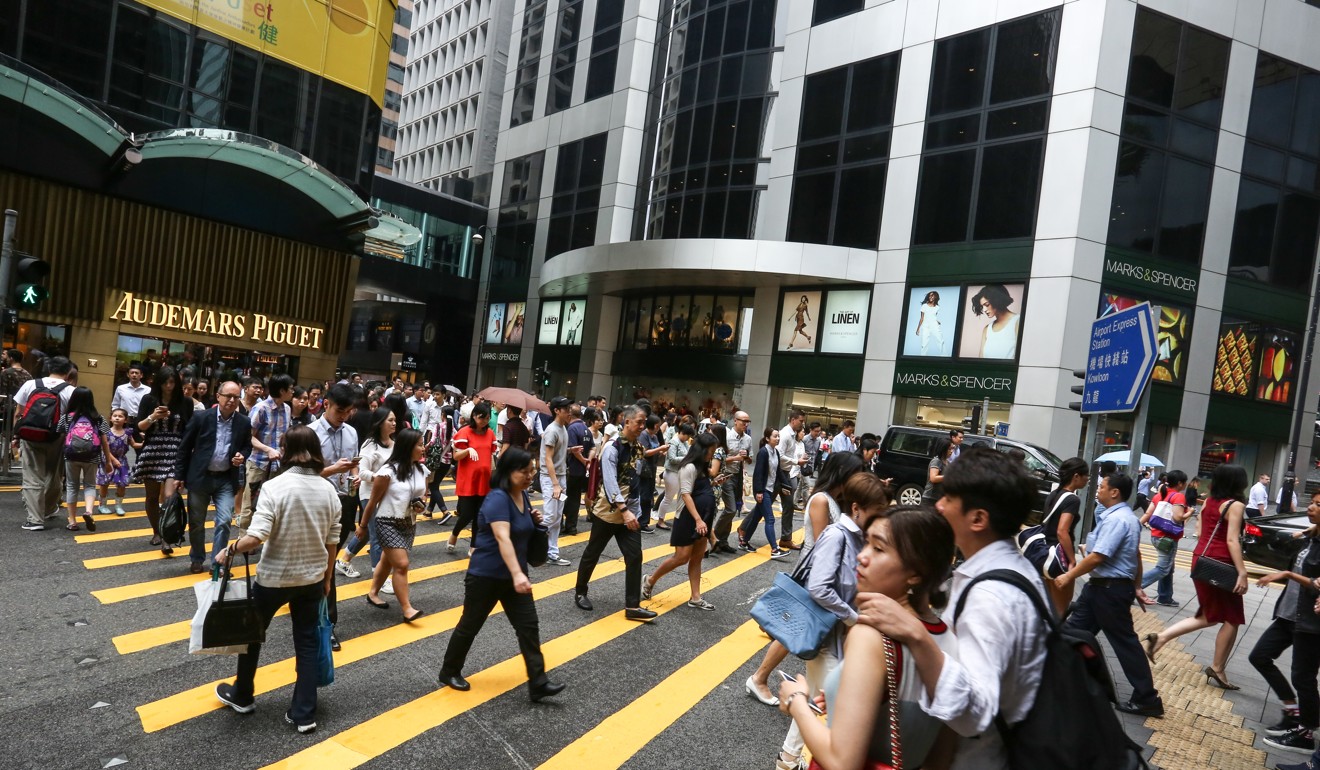
Culture or living standards? Why it’s hard for Hong Kong to smile
City shows only a slight improvement from dismal global ranking in annual smile survey. Experts say pace of life plus manpower woes have dampened moods and service standards

Every Saturday, roaring laughter can be heard from a corner of Kowloon Park in Tsim Sha Tsui, Hong Kong. The jolly sound comes from a group of people doing yoga.
The weekly session, organised by the Laughter and Friends Club, encourages participants to keep fit not only through yoga postures but also by having a good laugh. The exercise in health and humour starts with sparse giggles, then deep breathing, stretches and a bunch of silly jokes, followed by peals of laughter.
The club is run by a group of enthusiasts who got together to promote laughter yoga. The concept is based on the belief that voluntary laughter carries the same physical and psychological benefits as spontaneous laughter. It is not new, but perhaps more people in Hong Kong, notorious for its pressure-cooker environment and breakneck pace of life, need it.
According to the 2018 Smiling Report, conducted by market research company Better Business, Hong Kong is one of the most grim-faced cities in the world.
Data compiled in the report, which measures service quality, ranked Hong Kong 25th out of 29 regions surveyed. Based on feedback from shoppers last year in 50 countries and cities across Asia, Europe, as well as North and South America, Hong Kong scored 66 points out of 100.

The only silver lining in the city’s low ranking for service smiles is that the score marked the best performance by Hong Kong since it was included in the annual survey eight years ago. In 2017, it came in second-last – one rung up the ladder from last place in 2016.
While the findings reflect the city’s penchant for a service with a scowl, on a wider societal scale, the attitudes of frontline staff are also widely believed to mirror the general mood of residents.
One exception is Hermia Chow Suk-han, an office clerk, who has been a laughter yoga regular for more than seven years.
Feeling stressed for whatever reasons shouldn’t turn you into a bitter person
“Walking down the streets in a stressful city like Hong Kong, we often come face-to-face with some long-faced Hongkongers,” Chow says. “But feeling stressed for whatever reasons shouldn’t turn you into a bitter person.”
Having to spend an average of nine hours a day at work, on top of three hours commuting between her home and the office, Chow, who is in her 40s, still manages to see the brighter side of life.
The cancer survivor regrets that she was not introduced to laughter yoga when she was battling leukaemia. Since overcoming the disease, she is continuing her journey to promote the importance of laughter and the benefits of this form of yoga.
The sessions are free of charge and conducted every Saturday at Kowloon Park from 9 to 10am.
“Despite my busy schedule, the sessions have allowed me to look at life in a more positive manner. I can feel my body getting healthier and I have become a more cheerful person as a result,” says Chow, who is also one of the club’s founders.

“Laughing releases dopamine and endorphins in the brain and the nervous system, which is helpful for one’s mental health, and I am speaking from my own experience,” she adds.
Standard of living or a grim face?
So what is it about Hong Kong that seems to turn the smiles of residents upside down? Factors range from lack of sleep and long working hours to the stress of slogging daily to make ends meet. A sociologist advises that one should not be too quick to judge another’s character just by his or her appearance at a particular time.
“It wouldn’t be fair to think people are cold just by the look on their faces because they may be going through a hard time and just can’t find the courage to smile,” says Dr Li Ming, a sociology lecturer at Chinese University.
Li says she is not surprised by the findings of the smiling report amid the constant work pressure, financial woes and political and social tension Hongkongers face.
“I believe the results of the smiling report come hand in hand with the city’s standard of living. How can you smile when you are scrambling to make enough, just to pay for that little 100 sq ft flat?” she asks, citing the 2018 Quality of Living survey conducted by consultancy firm Mercer, which evaluated living conditions in more than 450 cities.
How can you smile when you are scrambling ... just to pay for that little 100 sq ft flat?
In that report, Hong Kong ranked 71st, while neighbouring Singapore placed 25th, the highest ranking for an Asian city.
“The problem will remain until the Hong Kong government steps up to address all these social issues,” Li adds.
University of Hong Kong sociologist Cecilia Chan Lai-wan has another take. She describes the situation as a vicious cycle.
“Wearing that grim face whenever you’re down will only allow negative thoughts to stay with you which will in turn, make you feel even sadder,” says Chan, who chairs HKU’s department of social work and social administration.
“The best medicine to a weary heart is always laughter, but I understand the difficulties in laughing or smiling without good reasons.”
However, she points out that even if the action of laughing is forced, it can still be beneficial.
“Laughing releases feel-good hormones, the body’s natural painkiller. It has been proven that laughing does more good to the mind, body and soul than any other exercise – it will bring you inner peace.
“If you’re working long hours, try to smile when you’re at work. If your commute is lengthy, smile when you’re on public transport. It won’t cost anything or any extra time, but it’s rewarding and beneficial to your mental and physical health.”
Bad for tourism
The smile report also covered verbal and body language of retail staff in Hong Kong. Such workers in the city were ranked 30th out of 32 regions on how much they made customers feel welcomed.
The Czech Republic performed the best, topping the chart with 95 points out of 100, while Hong Kong scored 68, just slightly ahead of Macau (56) and Morocco (48).
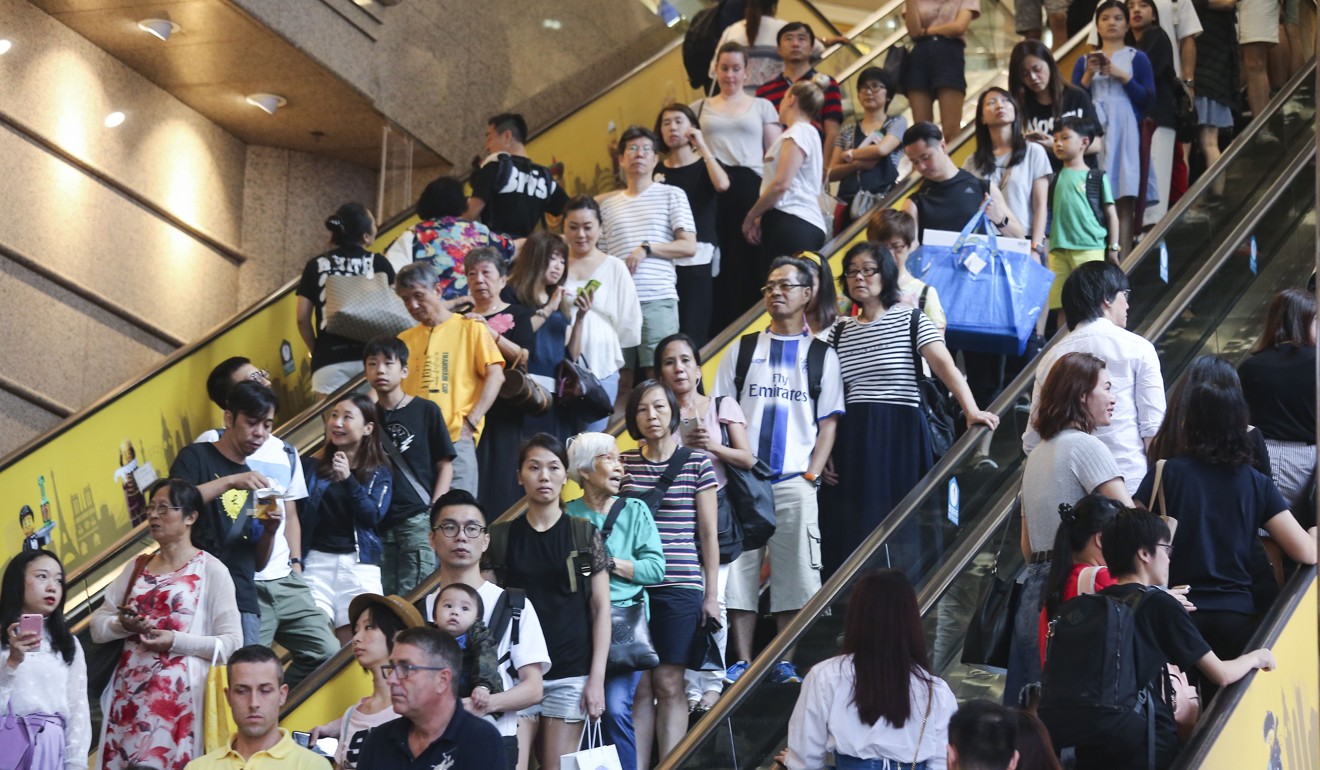
A labour shortage is to blame for dragging down service quality in the industry, tourism sector lawmaker Yiu Si-wing says.
“The statutory minimum wage guarantees workers HK$34.5 per hour (US$4.40), so most would rather work as security guards than in sales because it is less physically demanding,” Yiu says.
Most would rather work as security guards than in sales because it is less physically demanding
“Because of that, the retail sector is having trouble recruiting labour and this in turn causes those in the industry to become overworked, which explains why they are not smiling as much as they should be on the job.”
However, Yiu remains optimistic about tourism in the city as figures show a continuous rise in the number of visitors since a significant downturn from pervasive anti-mainland sentiments in 2015, sparked by opposition to parallel trading.
This was the phenomenon of mainland visitors to the city stocking up on daily necessities, then reselling them for a profit back home. They were accused of causing overcrowding in towns close to the border, leaving locals short of supplies.
According to the Tourism Board, a total of 4,995,122 tourists visited the city in March this year, a 8.9 per cent rise from the same period in 2017.
“Of course frontline salespeople will always make a strong impact on tourists, but the burden doesn’t only fall on them,” Yiu says. “Everyone has a responsibility to turn Hong Kong into a more tourist-friendly city.”
“There is no need to show disdain for our visitors, especially those from the mainland. If we’re not promoting the good side of Hong Kong culture, then how do we expect them to return for a visit?”
HOW FRIENDLY ARE HONGKONGERS?
City Weekend talks to people in Hong Kong and invites them to give their own scores:

Marine Visiedo, 27, France
Score: 5 out of 10
“People here are not so friendly, I think in general they’re too focused in their heads and always on their phones even when they’re walking. You can feel that they’re physically here but their minds are somewhere else. I understand Hong Kong is a busy city but I think people should work harder on smiling more and be more aware of their surroundings. That will break the barrier that is keeping them from being more friendly.”
Mehdi Velkbir, 27, France
Score: 7 out of 10

“I think people here give out a friendly vibe, even though I can see that some are more in a hurry in certain districts and especially during rush hours. When I dine at restaurants, the servers always wear a smile and come off very nice and helpful.”
Pun Chi-hin, 18, mainland China
Score: 10 out of 10

“This is my first time in the city and my visit has been amazing. I was just out shopping around and the salespeople were all very polite and offered a lot of help. Despite it being more crowded than what I am used to back home, generally Hongkongers are very well-mannered. I can feel that people mean good even if they’re not wearing a smile.”
Mr Chan, 54, Hong Kong
Score: 4 out of 10
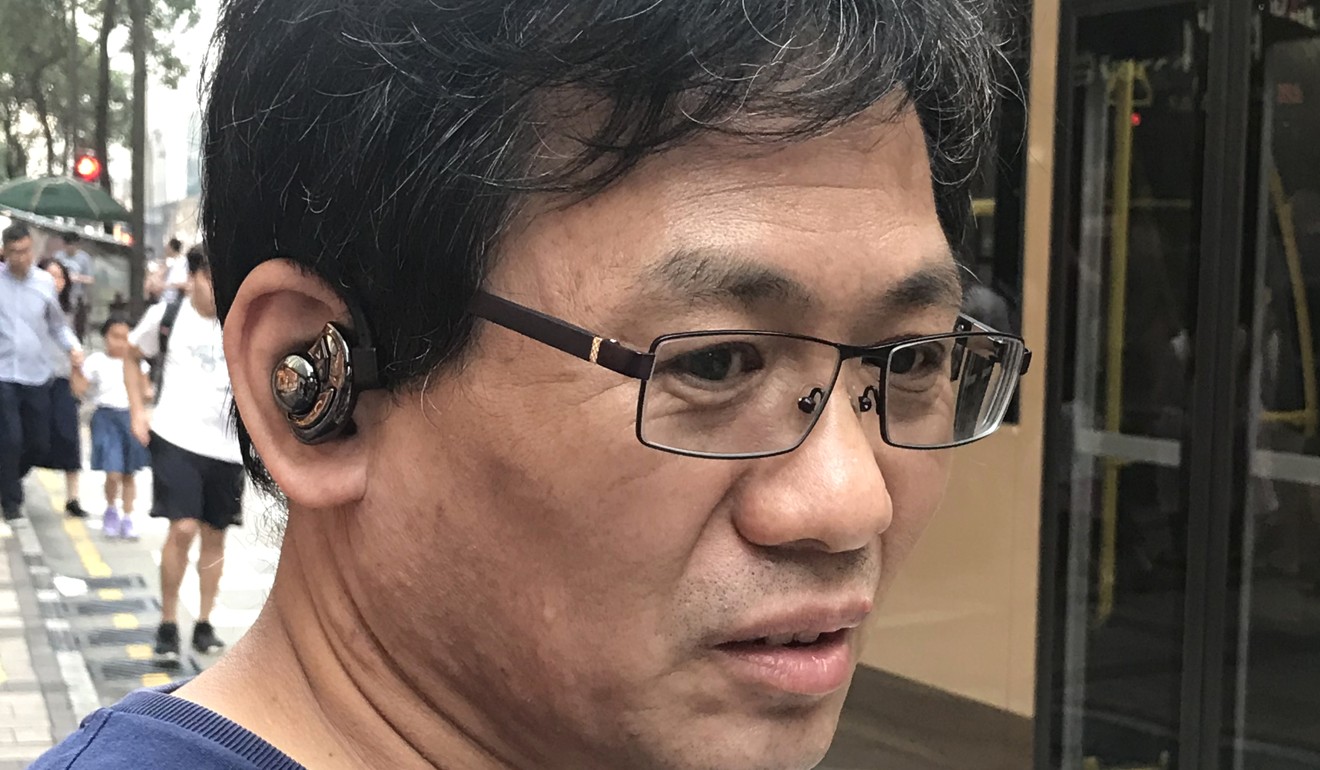
“Hongkongers are unfriendly in my opinion but they’re not to blame. It’s been like this for many years. Society is too polarised and people’s livelihoods are being affected because there is no compromise between the government and the Legislative Council when it comes to handling social issues. So how do you expect people to smile if they can’t even live a comfortable life?”
